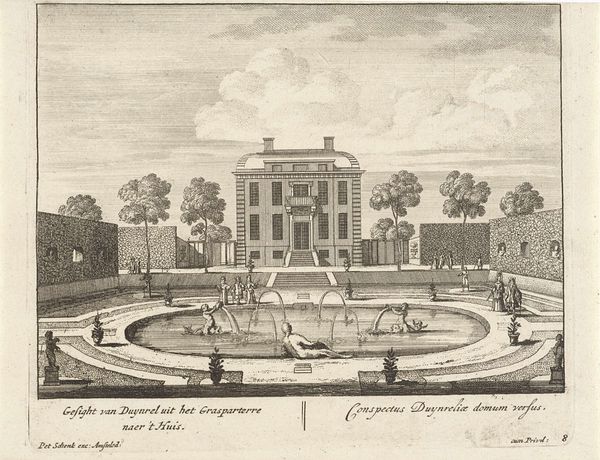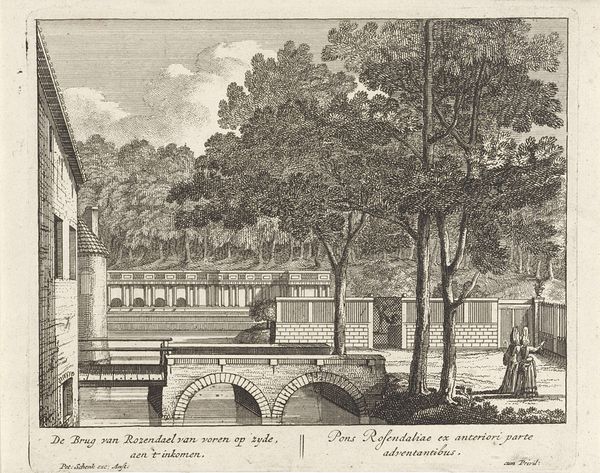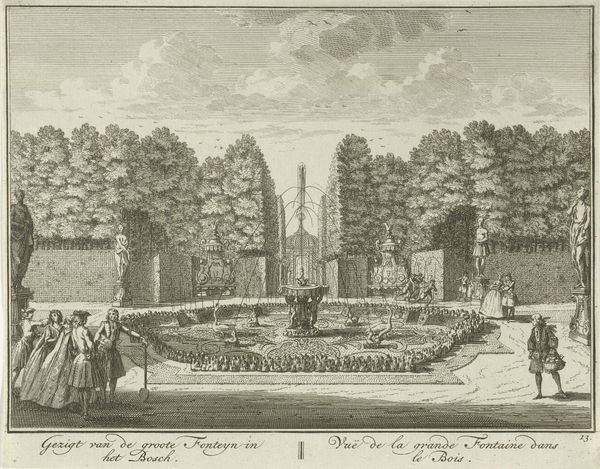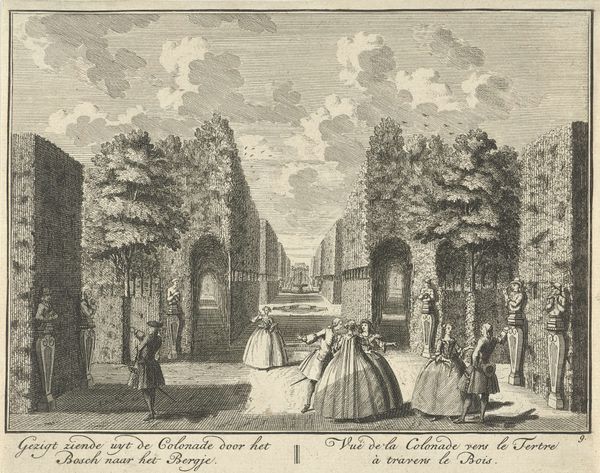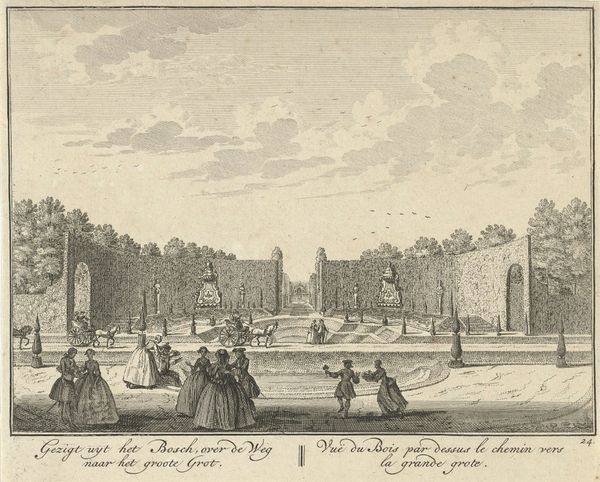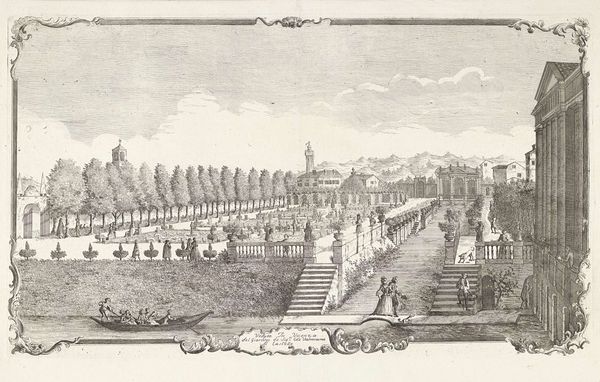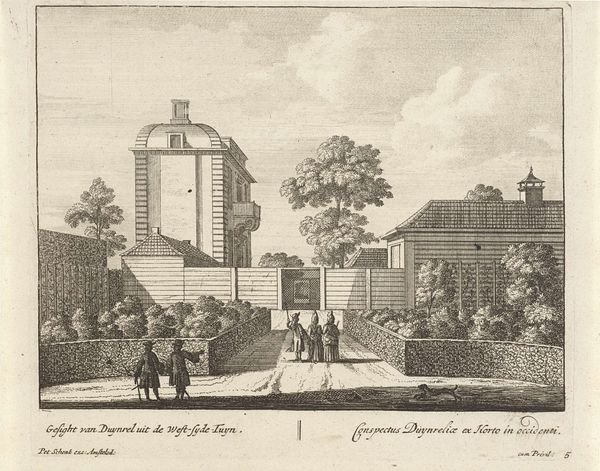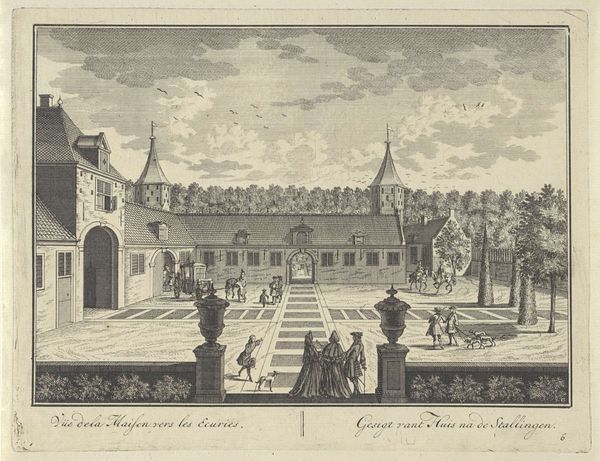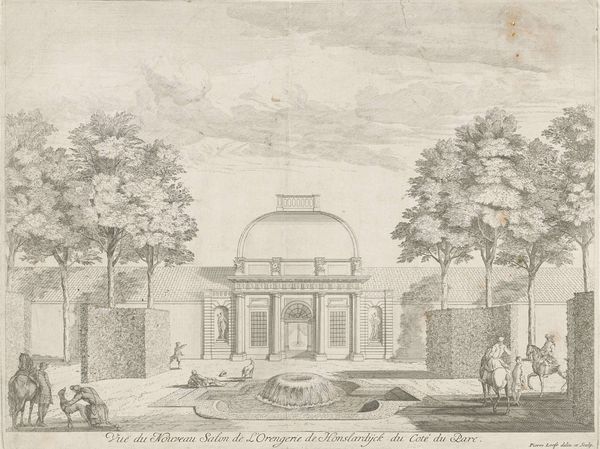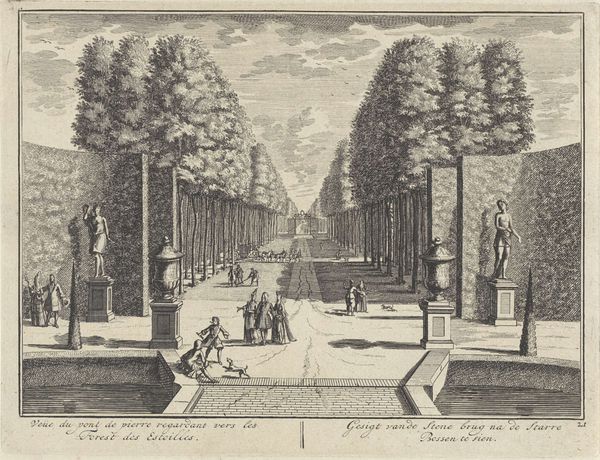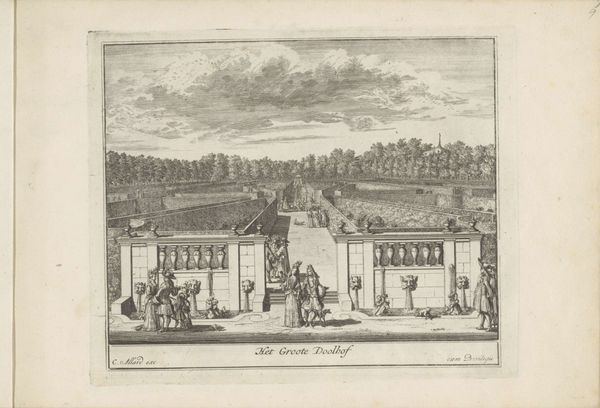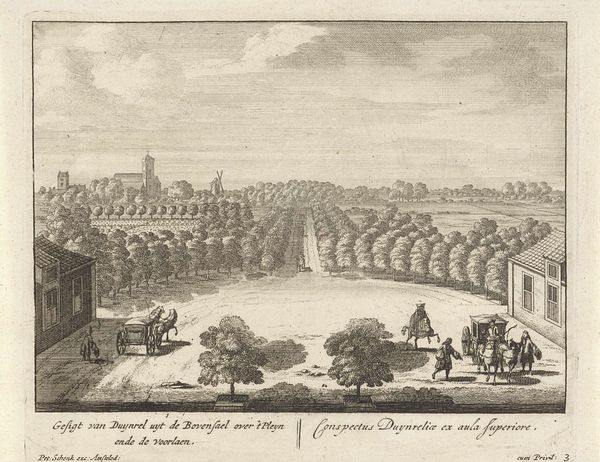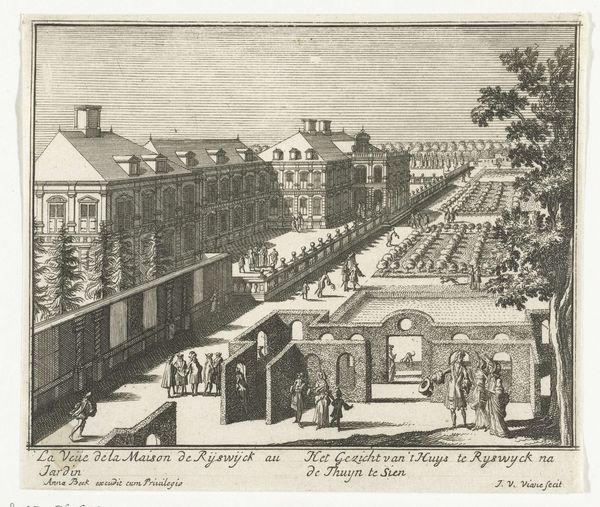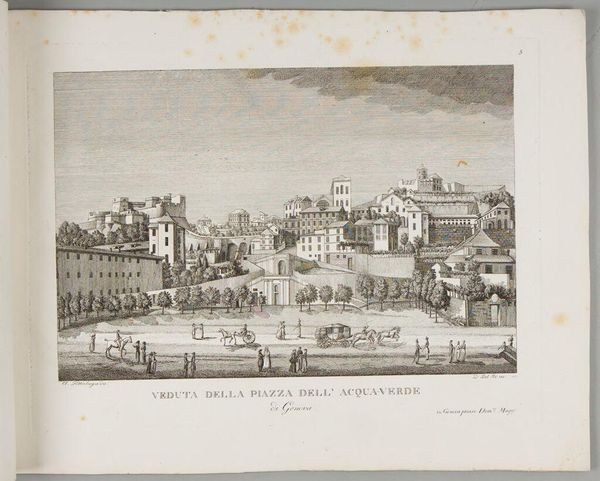
Gezicht op het huis van buitenplaats Duinrell, gezien vanuit de tuin 1675 - 1711
0:00
0:00
anonymous
Rijksmuseum
etching
#
baroque
#
dutch-golden-age
#
etching
#
old engraving style
#
landscape
#
cityscape
Dimensions: height 171 mm, width 199 mm
Copyright: Rijks Museum: Open Domain
Editor: This is "Gezicht op het huis van buitenplaats Duinrell, gezien vanuit de tuin" or “View of the House of Duinrell Estate from the Garden," made between 1675 and 1711 by an anonymous artist. It’s an etching currently held at the Rijksmuseum. It gives off such a serene, orderly feel. The lines are so crisp. What elements stand out to you? Curator: Immediately striking is the meticulous application of line, dictating depth and form. Consider the garden’s geometric arrangement; the artist has employed sharp lines to create defined spaces, offering a controlled representation of nature itself. Editor: The strict geometry of nature, interesting... Curator: Indeed. Examine how the architecture is rendered, its facade presented with rigid symmetry. What semiotic reading can we give the contrast between wild growth and geometric precision in this composition? Editor: Well, perhaps the estate suggests humankind’s power to manipulate its environment and assert control. The architectural design is almost like a performance of order. Curator: Precisely! Note how the perspective and arrangement push our eyes toward the house. What structural function does that have in our reading of this image? Editor: The house being centered seems to solidify this impression of dominance, the garden acting as a path directly to wealth and power. Curator: Precisely. It’s a structured world reflected through the deliberate application of line and form, wouldn’t you agree? Editor: Absolutely, paying attention to those formal elements helped reveal the work’s meaning to me in a totally new light. Curator: An application of Formalism helps peel back representational and contextual meaning to reveal purpose.
Comments
No comments
Be the first to comment and join the conversation on the ultimate creative platform.
